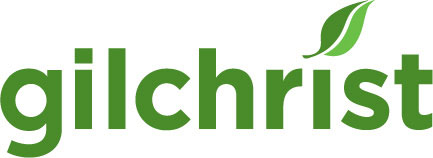Gilchrist Celebrates World Hospice and Palliative Care Day
October 12, 2019, is World Hospice and Palliative Care Day. On this day, Gilchrist will unite with organizations and individuals around the world to celebrate and support hospice and palliative care.
Nearly 1.5 million Medicare beneficiaries use hospice each year, receiving care and support at the end of life. While the number of people choosing hospice is growing, misconceptions and a lack of public awareness about the many benefits of hospice remain.
Hospice is not about giving up. Studies have shown that people who enroll in hospice live an average of 29 days longer than those who do not, perhaps because they are not subject to the stress and discomfort of ongoing treatment, unnecessary tests and hospitalizations. Rather, hospice is about providing care and support to the seriously ill and their loved ones so that they can focus on what matters most: cherishing every moment of life.
In honor of World Hospice and Palliative Care Day, here are a few of the many benefits hospice can offer.
Care in the Comfort of Home
With hospice, patients can receive care at their home or residential care community so they can remain in their own familiar environment, with their family, pets and personal belongings. They will not be subject to loud machines or invasive medical procedures to disrupt them. Respecting a patient’s wishes and making sure they are comfortable allows them to maintain dignity and live out their days on their own terms.
Integrated Hospice Team
An integrated hospice team is ready to meet the needs of each patient and family. A patient can receive regular visits from a registered nurse case manager, a hospice aide to provide personal care, a social worker to provide counseling and support, and a chaplain to offer spiritual care. In collaboration with a personal physician or a Gilchrist physician, the registered nurse case manager will provide skilled care and support, tailored to the loved one’s goals and needs. Additionally, there are opportunities to work with music therapists.
Peace of Mind
The registered nurse that manages care is specially trained in providing end-of-life care. They will navigate pain and symptom management and will educate families about caregiving. With someone from the medical team on call 24 hours a day, families can have peace of mind that their loved one will be taken care of.
Personalized Support
With in-home hospice care, a loved one is the only patient in the room and does not have to wait for care. A certified hospice aide will provide compassionate personal care to take the stress out of everyday tasks, such as bathing and dressing, while helping the individual maintain dignity and independence. Volunteers are available for companionship, respite for caregivers, or errands. No matter the need, the hospice team will be there to provide support.
Lessen Financial Burdens
Hospice care is covered by Medicare, Medicaid and most private insurance. Gilchrist provides hospice care to all qualified individuals, regardless of their ability to pay. Covered services include in-home visits by all members of the hospice interdisciplinary team, medications for pain control and symptom management, medical equipment and supplies, bereavement support services, inpatient care and respite care.
Family Counseling at All Stages
The medical team provides training on the use of the medical equipment provided, advice on how to best care for the patient, and education about the disease progression. The social worker will provide support and counseling for families in the form of assistance in accessing resources, making alternative living arrangements, dealing with financial issues, assisting in the preparation of advance directives, and with funeral arrangements. Grief counselors are also there to offer support before and after a loss, through one-on-one counseling, support groups and events.
Family and Friends Involvement
It takes a village to provide the proper support for this emotional journey, and with hospice care, family and friends can visit freely. With the loved one’s home as the central base, visitors can come and go as they please, help prepare meals, and give respite to caregivers in a comfortable setting.
Spiritual Counseling
Spiritual well-being is another pillar in the holistic approach to hospice care. Navigating the end of life can weigh heavily on the mind, and chaplains will be there to provide spiritual support and counseling for the family and the loved one that is based on their spiritual or religious beliefs, practices and needs. Chaplains will listen to concerns and offer prayers, if requested, and help families reflect on what is most meaningful in their lives and offer support in healing relationships. Our hospice chaplains will also work with a family’s personal clergy and congregation, if desired.
To learn more about Gilchrist Hospice Care, visit gilchristcares.org/hospice.


